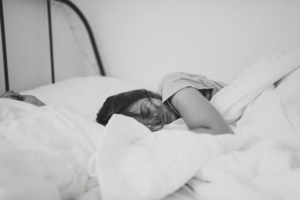How Sleep Benefits Athletes (+ Tips on How to Get the Best Sleep)
In today’s Find Your Edge podcast episode, Chris Newport speaks with Dr Catherine Darley, a naturopathic sleep specialist in Seattle, WA. She works with individuals, organizations and healthcare professionals on sleep strategies for optimal performance.
What are the 5 domains of sleep and why is sleep so important?
Dr Darley explains how sleep is critical in shaping our days, which she thinks of in five domains. The first domain of sleep is physical performance. For athletes, this is where sports improvement occurs.
In fact, here’s some quick stats she shares relating to physical performance and sleep:
- In a basketball study, shooting improved by 9% with 10 hours of sleep.
- For swimmers, they are faster off the starting blocks with more sleep.
- In tennis players who are getting 9 hours of sleep increase their accuracy of serves by 6%.
The second domain is cognitive performance, where the brain is able to do everything from remembering things to doing complex problem solving. Then there is physical and mental health. Lack of sleep can put you at risk for increased risk of hypertension, obesity, anxiety, depression and more. The final domain is emotional intelligence, or how you get along well with others.
What happens during sleep?
REM sleep is important for memory consolidation and emotional stability. There is also stage 1, 2 and 3 of non-REM sleep. Stage 2 sleep has a function for learning. Stage 3 sleep is particularly important for athletes, which is when the majority of growth hormone is released, which is critical for athletic recovery. It’s also the type of sleep that is hard to wake up from. We cycle through each sleep stage multiple times at night.
Are naps beneficial?
Naps are a great performance enhancing strategy, so long as the timing is correct. Dr Darley explains how either short or long naps are ideal in order to cycle through the sleep stages properly.
How can we best prepare for sleep?
Light exposure suppresses melatonin, the “hormone of darkness,” which is important for the best sleep. She discusses red and yellow light versus blue light, which is the main light created from phones, TVs, and electronic devices which will suppress melatonin production. She recommends preparing our environment with what she calls a “bedroom check.” It’s important that it be very dark. Ambient temperature should be 65 degrees or cooler. Sleepwear and sheets should be made of natural fibers vs synthetic fibers. She also recommends having layers in order to adjust the temperature appropriately.
What supplements are beneficial for sleep?
Most importantly, discuss your supplement strategy with your healthcare providers. We talk about why higher doses of melatonin are not beneficial, since the psychological dosing supported by the research is 0.3-3mg. Dr Darley also discusses l-theanine and why she likes to start with that supplement for sleep before doing to melatonin.
We curated a selection of sleep supplements that you can view and purchase here that are evidence based and have worked well in our experience, including l-theanine, inositol, magnesium, and low dose melatonin.
Caffeine, alcohol and sleep
It’s important to consider your ability to process caffeine, especially relating to proximity to bedtime. Dr Darley recommends withdrawing from caffeine or alcohol for 7-10 days, taking note about how your sleep responds, then try to introduce it again with the added self-knowledge and priorities of how you’ll react. Alcohol initially drops core body temperature, which is why it may help us fall asleep, but often 2-3 hours afterwards, it wakes us up. Alcohol also affects hydration status, which increases inflammation and reduces the body’s ability to sleep.
Summary: How to Get the Best Sleep for Performance
Dr Darley mentions how the most common issue with people is simply not getting enough sleep, so be sure you get around 8 hours. In fact, “sleep banking” on the weekends can negatively affect sleep and how it’s not a good strategy for health and performance. Secondly, she recommends getting 20 minutes of bright outside light within the first 2 hours of waking to properly reset your melatonin. Finally, be sure to set yourself up for success with a healthy sleep environment.
Visit Dr Darley’s website and get her 7 Steps to Better Sleep Guide at https://www.naturalsleepmedicine.net/ or at Instagram here.
Want to work with us to optimize your sleep with good nutrition and supplement strategies?
Book your free nutrition consult here. Learn more about our nutrition programs.
Follow us:
Instagram: @TheEnduranceEdge
Facebook: @TheEnduranceEdge
Have a guest or topic you want covered on the Find Your Edge podcast? Let us know!
Contact us and let us know!




